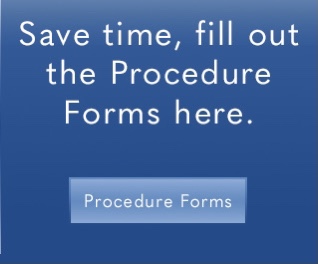Frequently Asked Questions
What is emergency dentistry?
Emergency dentistry involves the immediate treatment of dental issues that require urgent care to alleviate pain, stop bleeding, or save a tooth. This can include situations such as severe toothaches, broken or knocked-out teeth, abscesses, or injuries to the mouth. At City Smiles, we understand that dental emergencies can be stressful and unexpected, which is why we prioritise providing fast and effective care when you need it most. Located in the heart of Melbourne’s CBD, our team is equipped to handle a variety of dental emergencies to help relieve your pain and protect your smile. If you’re searching for an emergency dentist in Melbourne, contact City Smiles right away for prompt assistance.
How do I handle a knocked-out tooth?
If you have a knocked-out tooth, acting quickly is crucial to increasing the chances of saving it. Here are the steps you should follow:
- Handle the tooth with care: Avoid touching the root of the tooth. Hold it by the crown (the chewing surface) and gently rinse it with milk or saline solution. Do not scrub or remove any attached tissue.
- Try to reposition the tooth: If possible, place the tooth back in its socket carefully. Bite down gently on a clean cloth to hold it in place.
- Keep the tooth moist: If you can’t reinsert the tooth, keep it moist by placing it in milk, saline solution, or your own saliva. Avoid using tap water, as it can damage the cells on the root surface.
- Seek immediate dental care: Time is of the essence. Visit your dentist at City Smiles as soon as possible—ideally within 30 minutes. The team at City Smiles uses advanced digital technology to accurately assess your condition and provide personalised care, giving your tooth the best chance of survival.
By following these steps and reaching out to City Smiles promptly, you can increase the likelihood of saving your tooth and restoring your smile.
What conditions qualify as a dental emergency?
At City Smiles, we understand that dental emergencies can be stressful and painful. If you’re experiencing a dental issue and are unsure whether it requires immediate attention, our team is here to help. As your trusted emergency dentist in Melbourne CBD, we’re ready to assist with urgent dental care to prevent further complications.
Common dental emergencies include:
- Severe Toothache: Persistent, intense pain that doesn’t improve with over-the-counter pain relief.
- Broken or Chipped Tooth: Especially if it’s painful or has sharp edges that could cause injury.
- Knocked-Out Tooth: Quick action is crucial—prompt treatment can save the tooth.
- Abscess or Infection: Swelling, fever, or pus around a tooth or gum indicates a serious infection that needs immediate attention.
- Uncontrolled Bleeding: After an injury or dental procedure, excessive bleeding is a sign of an emergency.
If you’re experiencing any of these symptoms or are unsure about your situation, contact City Smiles—your reliable emergency dentist in Melbourne CBD. Our team is ready to provide the care and guidance you need to protect your oral health.
Can a tooth infection spread to other parts of the body?
Yes, a tooth infection can spread to other parts of the body if left untreated. When bacteria from an infected tooth enter the bloodstream, they can travel to other areas, potentially leading to serious health issues such as sinus infections, jawbone infections, and even life-threatening conditions like sepsis. That’s why it’s crucial to address tooth infections promptly to avoid these complications.
At City Smiles, your health and well-being are our top priority. If you suspect a tooth infection and need an emergency dentist in Melbourne CBD, don’t wait—schedule an appointment with our experienced team. We’ll assess your situation and provide the necessary treatment to prevent the infection from spreading, ensuring your smile stays healthy and pain-free.
How can I stop bleeding from my mouth after a dental injury?
To stop bleeding from your mouth after a dental injury, follow these steps:
- Apply Pressure: Use a clean gauze pad or a soft cloth to gently press against the bleeding area. Hold the gauze in place for about 10 to 15 minutes. If the bleeding persists, replace the gauze and continue applying pressure.
- Stay Upright: Sit up and avoid lying down, as this can reduce blood flow to the head and increase the chances of bleeding.
- Use a Cold Compress: Applying a cold compress to the outside of your mouth can help reduce swelling and slow down the bleeding.
If the bleeding does not subside after trying these methods, it’s important to seek professional help. City Smiles offers emergency dental services, providing timely and professional care to address injuries and stop excessive bleeding. Our experienced team will assess your injury and ensure that any further complications, such as tissue damage or tooth injury, are treated promptly.
What are the signs of a dental infection that require emergency care?
Signs of a dental infection that require emergency care can include intense, throbbing pain in the affected tooth or surrounding area, swelling in the face or gums, fever, and a foul taste or odour in the mouth. You may also notice difficulty chewing, swallowing, or opening your mouth fully. If the infection spreads, it could lead to more severe complications, such as difficulty breathing or swollen lymph nodes.
At City Smiles, timely care is essential for preventing dental infections from worsening. Our team is dedicated to offering swift emergency care to manage infections and provide relief, utilising advanced digital technology to ensure accurate diagnosis and effective treatment. If you suspect a dental infection, don’t hesitate to seek immediate attention to protect your health.
Ask a Question or Book an Appointment
Please fill in the online enquiry form to ask a question or book an appointment. We look forward to seeing you soon.


